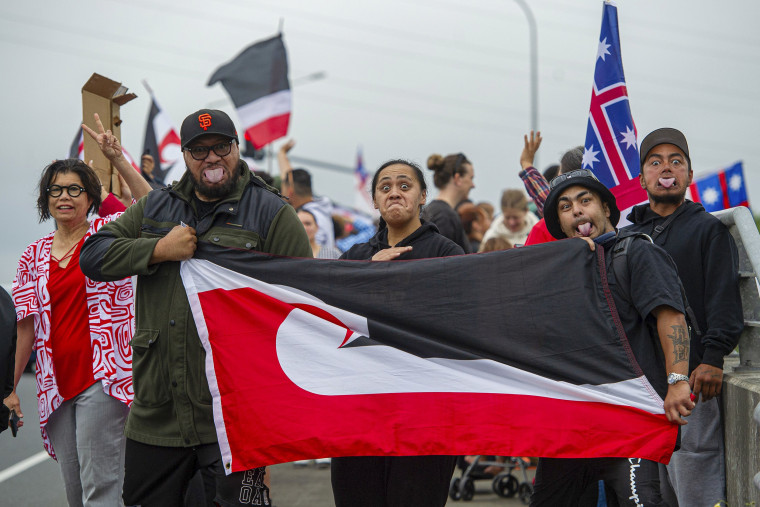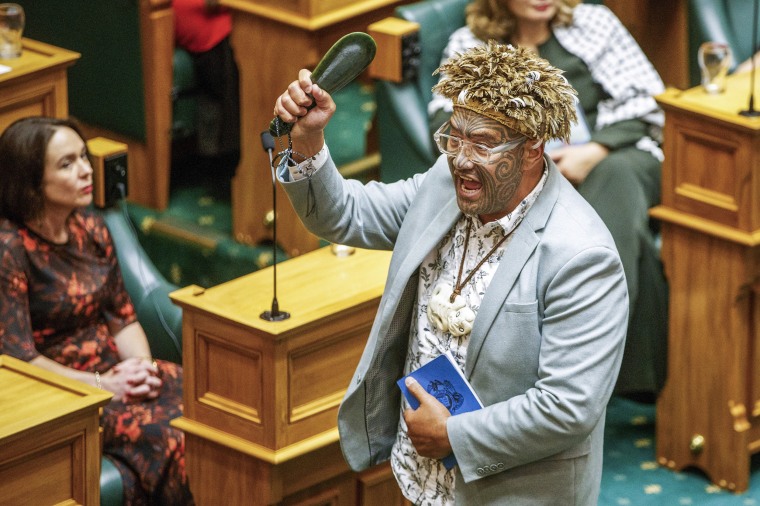Indigenous Maori politicians broke with protocol at the opening of New Zealand’s parliament on Tuesday, pledging allegiance first to their descendants and the country’s founding document before swearing an oath to Britain’s King Charles III.
New Zealand’s parliament was sitting for the first time since the Oct. 14 election. Parliamentarians must all swear an oath to King Charles III, who is the country’s head of state.
The six lawmakers who belong to the Te Pati Maori, which is the smallest party in parliament and represents the Maori people, each made a pledge to their mokopuna, or descendants, to tikanga, or Maori practices, and the Maori version of the Treaty of Waitangi.
The Treaty of Waitangi signed in 1840, laid down a set of principles under which the British and Maori agreed to govern New Zealand, but the English and Maori versions differ and there is debate over whether Maori ceded sovereignty.
Several of the Te Pati Maori members wore feathered headdresses and cloaks honoring their traditional roots and sang or performed an Indigenous challenge.
The party members later swore allegiance to the king but at least two chose to change the word Kingi Tiare for Kingi Harehare. Te Pati Maori co-leader Rawiri Waititi told local media Harehare was just another name for Charles. However, it can also translate to something objectionable or offensive.

Other parliamentarians who speak Maori were unconcerned by the change.
Te Pati Maori, which would like to remove the king as head of state, said in a statement on Friday the oath was symbolic of the colonial power that Parliament places above the standing of Indigenous people.
The move comes as race relations issues in New Zealand heat up. Te Pati Maori led protests across the country earlier in the day.
While New Zealand’s republican movement is not huge there has been debate for some time on whether the Pacific nation should become a republic, with a citizen as the head of state. In some Indigenous communities this feeling is stronger, both in New Zealand and elsewhere, as the king is a symbol of colonialization.
In 2022, Indigenous Australian parliamentarian Lidia Thorpe had to retake her parliamentary oath after she changed it to label Britain’s queen a colonizer.
A number of New Zealand politicians have previously tried to avoid the oath but relented to participate in government.
